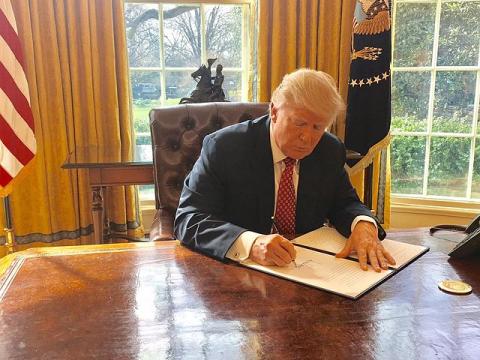Several of Trump’s executive orders have now been blocked by federal district court judges.
First the travel ban, then on Tuesday President Trump’s sanctuary city executive order was blocked by U.S. District Judge William Orrick. The judge issued a temporary ruling in a lawsuit against the executive order targeting so-called sanctuary cities.
The decision will remain in place for now, but both cases could make their way to the Supreme Court.
Is it normal for a single, federal judge, such as Orrick, to be able to block the president with their decision? Here's what you need to know to understand how one individual has the authority to block the president.
1. Article III of the Constitution grants this power directly
Article III of the Constitution states that federal courts may only decide executive order cases where “Controversies to which the United States shall be a Party.”
The plaintiff, be it individual, group, or state, must be able to claim a real injury when attacking an executive order. Additionally, plaintiffs must be careful about where they file their case. A lawsuit will often originate in a court where it is likely the judge will rule in their favor.
However, cases can also be appealed all the way to the Supreme Court, which has the final decision.
2. District judges are appointed by presidents for life, and ideology plays a crucial role
Each district judge is appointed for a life term, making it impossible for any single president to nominate all of these judges in their term(s). Thus, district court judges are appointed by both Republican and Democratic presidents.
Judge Orrick is one of 714 U.S. district court judges who are nominated by the president and then approved by the Senate. Orrick was appointed by President Barack Obama, who he reportedly donated to and fundraised for during the 2008 campaign.
Since the Republican Senate refused to confirm many of Obama’s nominations, President Donald Trump will have the chance to appoint over 100 judges to district and appeals courts.
3. While district judges do have the ability to stop executive orders, it is unusual
While the courts do have the power to declare an executive order illegal or unconstitutional, they do not regularly overturn presidential actions. According to author William G. Howell in his book on the subject of executive actions, in his attempt to list every challenged executive order between 1945-1998, he found that the courts ruled in favor of the president in 83% of cases.
Still, it takes only one judge in one district court to block an executive order made by the President of the United States.
